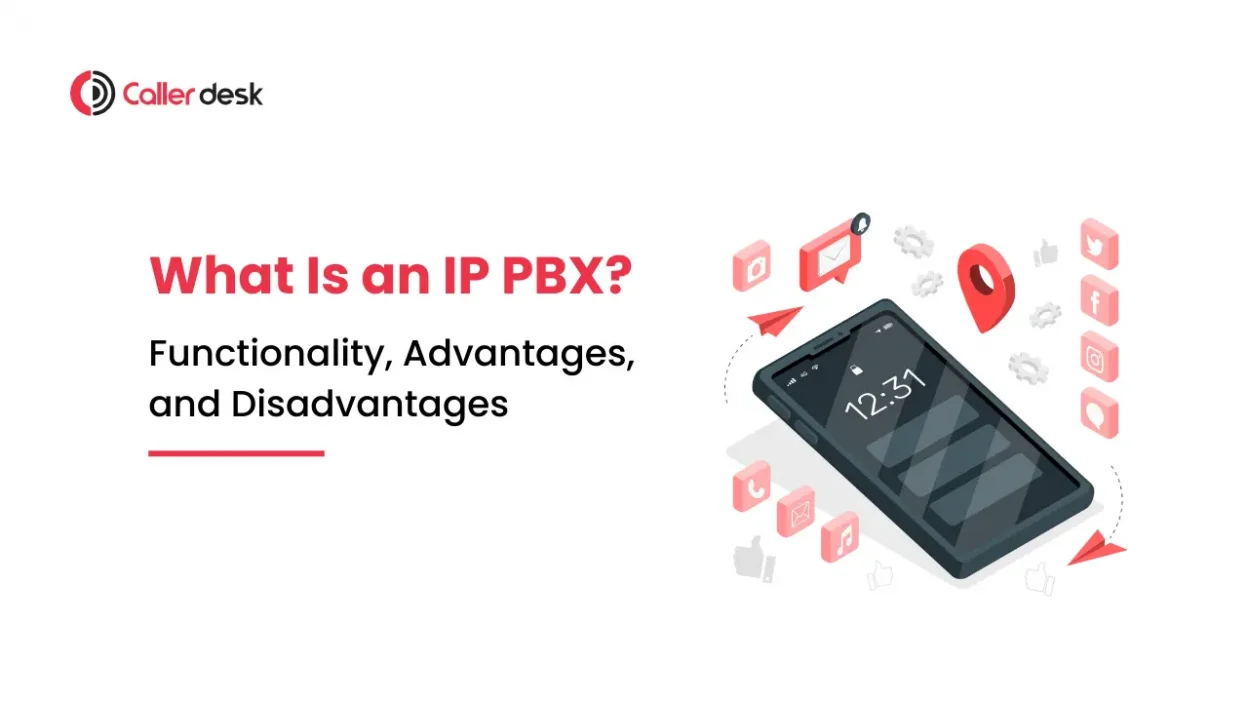To stay ahead in the continuously changing world of business communications, apply solutions that improve efficiency, scalability, and flexibility. One such advancement is the IP PBX (Internet Protocol Private Branch Exchange), which integrates traditional telephony with modern internet technologies. This innovative solution offers businesses a versatile and cost-effective way to manage their communication needs. In this blog post, we will delve into what an IP PBX is, how it functions, its key advantages, and the potential drawbacks you should consider.
What Is an IP PBX?
An IP PBX is a telephony system that uses Internet Protocol to transmit voice and other communication data. Unlike traditional PBX systems that depend on circuit-switched networks, IP PBX utilizes packet-switched networks, allowing voice, data, and video to be transmitted over the same network infrastructure. This convergence simplifies the communication architecture and provides a unified platform for managing internal and external communications.
Functionality of an IP PBX
An IP PBX system performs several critical functions that streamline and enhance business communications:
1. Call Routing
Automatically directs incoming calls to the right extension or department based on predefined rules, ensuring smooth and efficient communication flow.
2. Voicemail
Provides voicemail services with the ability to send voicemail messages directly to email, making it easier to access and manage messages.
3. Automated Attendant
Greets callers with a customizable menu system, allowing them to choose options to reach specific departments or extensions quickly.
4. Conference Calling
Supports multi-party conference calls, enabling better collaboration and communication within the organization.
5. Integration with CRM
Seamlessly connects with Customer Relationship Management (CRM) systems to streamline customer interactions and enhance service quality.
6. Unified Messaging
Combines various forms of communication—voice, email, and text—into a single, easy-to-use interface for improved efficiency and convenience.
Advantages of an IP PBX
Implementing an IP PBX system in your business offers several key benefits:
1. Cost Savings
By using the internet for calls, businesses can significantly reduce phone bills, particularly for long-distance and international communication.
2. Scalability
IP PBX systems are highly scalable, enabling businesses to easily add new lines and features as they grow, without the need for major infrastructure changes.
3. Flexibility
Employees can make and receive calls from anywhere with an internet connection, making it ideal for supporting remote work and mobile teams.
4. Enhanced Features
Advanced features like call forwarding, voicemail-to-email, and video conferencing boost productivity and streamline communication.
5. Ease of Integration
IP PBX systems integrate seamlessly with other business applications, such as CRM software, enhancing functionality and improving workflow efficiency.
6. Unified Communication
These systems consolidate voice, video, and data communication into a single network, simplifying management and boosting overall efficiency.
Disadvantages of an IP PBX
While IP PBX systems offer numerous benefits, there are also some potential disadvantages to consider:
1. Internet Dependency
The performance of an IP PBX system relies heavily on internet access. Poor internet quality can lead to issues like latency, jitter, or even dropped calls, which can disrupt communication.
2. Security Concerns
If not properly secured, VoIP systems can be vulnerable to cyber threats like hacking, data breaches, or eavesdropping. Implementing strong security measures is essential to protect sensitive communication.
3. Initial Setup Costs
While IP PBX systems are cost-effective in the long run, the initial setup can be expensive. Costs for hardware, software, and training may add up, especially for small businesses.
4. Technical Expertise
Maintaining and managing an IP PBX system requires technical know-how. Businesses might need to invest in training existing staff or hiring specialized professionals, adding to overall costs.
5. Power Dependency
IP PBX systems depend on both power and internet. A power outage or internet disruption can completely halt communication unless backup power supplies or failover systems are in place.
Conclusion
An IP PBX system offers a modern, flexible, and cost-effective solution for business communications, combining the benefits of traditional PBX systems with the advantages of internet-based technologies. While there are some challenges and considerations to address, the overall benefits can significantly enhance your business operations and communication efficiency.
When deciding whether an IP PBX system is right for your business, consider your specific needs, budget, and existing infrastructure. With the right implementation and management, an IP PBX can provide a robust platform for your business’s communication needs, supporting growth and enhancing productivity.
Explore how CallerDesk can help you implement an IP PBX system tailored to your business requirements, ensuring seamless integration and optimal performance.





